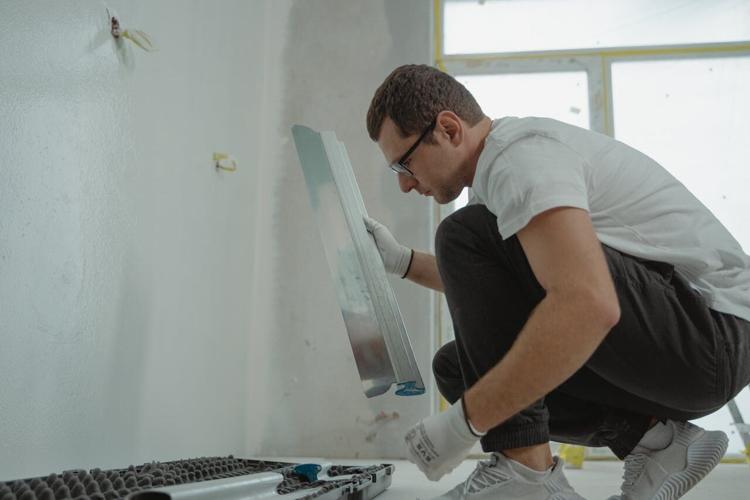
North Carolina's mix of heavy rainfall, high humidity levels, and expansive clay soil makes basements particularly prone to leaks, moisture intrusion, and mold growth. The state's climate creates nearly perfect conditions for basement water problems that develop quickly and worsen dramatically without proper protection.
Ignoring moisture issues leads to serious foundation damage and significant health risks from mold exposure that affects indoor air quality throughout homes. What starts as minor dampness can escalate into structural problems costing tens of thousands to repair while creating unsafe living conditions.
Understanding why professional basement waterproofing service is essential to keep NC homes safe and dry helps homeowners prioritize this critical protection. The investment in comprehensive waterproofing prevents expensive damage while creating healthy, usable basement space that adds genuine value to properties.
Climate and Soil Challenges in NC Basements
Heavy rainfall throughout North Carolina brings 40-50 inches annually in many areas, with intense thunderstorms dumping several inches in hours during summer months. This concentrated rainfall overwhelms drainage systems and saturates soil around foundations faster than it can absorb moisture.
Clay soil composition across much of North Carolina expands dramatically when wet and shrinks during dry periods, creating constant pressure fluctuations against basement walls. This cyclical movement opens cracks and stresses waterproofing systems more aggressively than stable soil conditions would.
High humidity year-round promotes condensation on cool basement walls even without active leaks, creating dampness that encourages mold growth and musty odors. Relative humidity often exceeds 70 percent during summer months, making dehumidification essential for maintaining dry basements.
Preventing Mold and Structural Decay
Mold growth happens quickly in damp North Carolina basements because warm temperatures and high moisture create ideal conditions for spore germination and colony development. Once established, mold spreads rapidly through porous materials like drywall, insulation, and wood framing.
Health impacts from mold exposure include respiratory problems, allergic reactions, and aggravated asthma that affect family members breathing contaminated air circulating through homes. Children and elderly residents face particular vulnerability to mold-related health issues.
Structural deterioration accelerates when moisture promotes wood rot in floor joists, sill plates, and support beams that carry your home's weight. Replacing rotted structural members costs thousands and requires jacking up houses to install new supports.
Increasing Home Value With Dry, Usable Space
Finished basement potential gets unlocked through proper waterproofing that creates dry, comfortable environments suitable for living spaces, home offices, or recreational areas. Damp basements serve no purpose beyond basic storage and contribute nothing to home values.
Buyer appeal increases dramatically when homes include dry, finished basements that add functional square footage to living space. Waterproofing documentation and transferable warranties reassure buyers that basement spaces will remain dry and usable.
Appraisal values reflect finished basement space when moisture problems don't exist, potentially adding $20,000-$40,000 or more to home values. Damp or leaking basements get excluded from square footage calculations and actually reduce values through deferred maintenance concerns.
Long-Term Protection vs. Temporary Fixes
Comprehensive waterproofing systems address root causes of moisture intrusion through proper drainage, waterproof membranes, and dehumidification rather than just treating visible symptoms. These permanent solutions prevent water problems instead of managing them after moisture enters.
DIY sealants and coatings provide temporary relief at best because they can't stop water driven by hydrostatic pressure from saturated soil. Surface treatments fail when pressure forces water through any available weakness in foundations.
Professional installation ensures systems work correctly from the start through proper design, quality materials, and experienced crews who understand North Carolina conditions. Warranties backing professional work provide protection that DIY attempts can't offer.

North Carolina's climate and soil conditions make basement waterproofing essential rather than optional for protecting homes from moisture damage and health hazards. The combination of heavy rainfall, clay soils, and high humidity creates basement water problems that develop rapidly without proper protection.
Professional waterproofing systems prevent the expensive foundation repairs, mold remediation, and structural damage that result from chronic moisture exposure. The investment in quality waterproofing pays for itself through avoided damage costs and increased home values.
Homeowners should treat basement moisture as urgent problems requiring comprehensive professional solutions rather than issues to manage through temporary DIY fixes. Proper waterproofing protects your health, your home's structure, and your property investment through every season.



(0) comments
We welcome your comments
Log In
Post a comment as Guest
Keep it Clean. Please avoid obscene, vulgar, lewd, racist or sexually-oriented language.
PLEASE TURN OFF YOUR CAPS LOCK.
Don't Threaten. Threats of harming another person will not be tolerated.
Be Truthful. Don't knowingly lie about anyone or anything.
Be Nice. No racism, sexism or any sort of -ism that is degrading to another person.
Be Proactive. Use the 'Report' link on each comment to let us know of abusive posts.
Share with Us. We'd love to hear eyewitness accounts, the history behind an article.